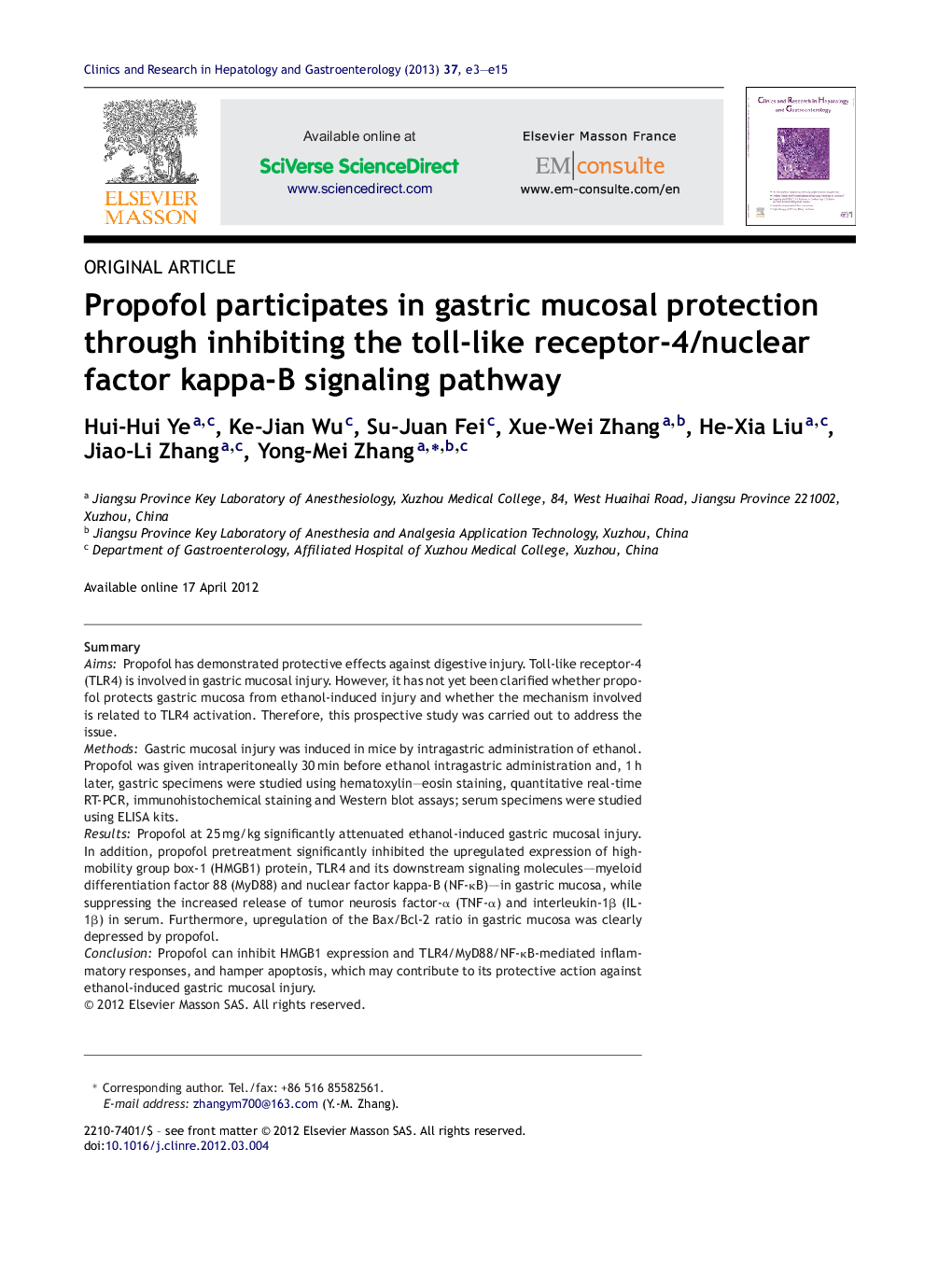| Article ID | Journal | Published Year | Pages | File Type |
|---|---|---|---|---|
| 3286767 | Clinics and Research in Hepatology and Gastroenterology | 2013 | 13 Pages |
SummaryAimsPropofol has demonstrated protective effects against digestive injury. Toll-like receptor-4 (TLR4) is involved in gastric mucosal injury. However, it has not yet been clarified whether propofol protects gastric mucosa from ethanol-induced injury and whether the mechanism involved is related to TLR4 activation. Therefore, this prospective study was carried out to address the issue.MethodsGastric mucosal injury was induced in mice by intragastric administration of ethanol. Propofol was given intraperitoneally 30 min before ethanol intragastric administration and, 1 h later, gastric specimens were studied using hematoxylin–eosin staining, quantitative real-time RT-PCR, immunohistochemical staining and Western blot assays; serum specimens were studied using ELISA kits.ResultsPropofol at 25 mg/kg significantly attenuated ethanol-induced gastric mucosal injury. In addition, propofol pretreatment significantly inhibited the upregulated expression of high-mobility group box-1 (HMGB1) protein, TLR4 and its downstream signaling molecules—myeloid differentiation factor 88 (MyD88) and nuclear factor kappa-B (NF-κB)—in gastric mucosa, while suppressing the increased release of tumor neurosis factor-α (TNF-α) and interleukin-1β (IL-1β) in serum. Furthermore, upregulation of the Bax/Bcl-2 ratio in gastric mucosa was clearly depressed by propofol.ConclusionPropofol can inhibit HMGB1 expression and TLR4/MyD88/NF-κB-mediated inflammatory responses, and hamper apoptosis, which may contribute to its protective action against ethanol-induced gastric mucosal injury.
